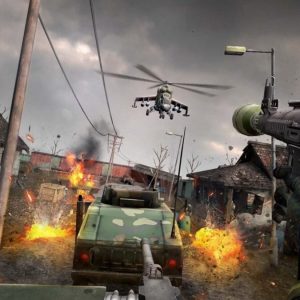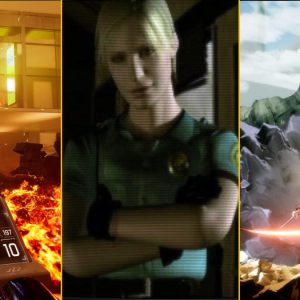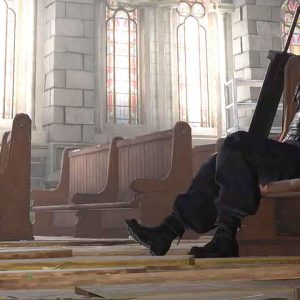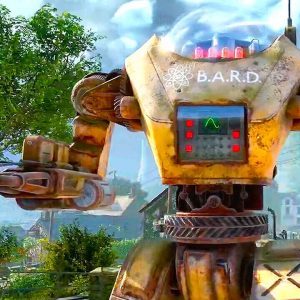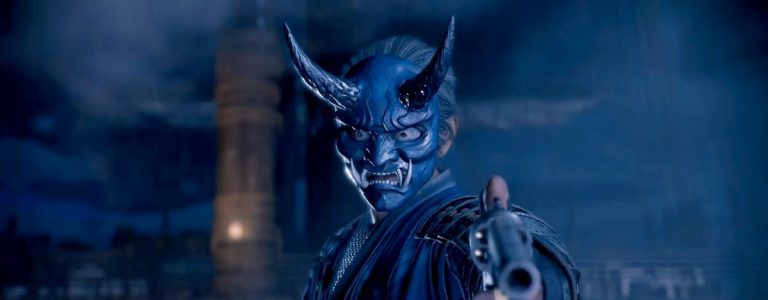Last Edited: September 26, 2018 at 8:17 AM
This page contains the different outcomes of various important decisions and choices that players must make throughout Detroit: Become Human.
When playing Detroit: Become Human, you will constantly have to make decisions that will affect the story in significant ways. Depending on what you do and how you play, the story you see and the ending you get can be altered in a big way. This comes from a number of key points throughout the story where your choices affect everything.
SPOILER ALERT: This page will contain spoilers for parts of the story for Detroit: Become Human. Proceed with caution if you don’t want certain big plot elements to be spoiled for you!
Early Important Choices[edit]
While the first several chapters of Detroit don’t offer massive, narrative-shifting decisions for the three main characters, there are a handful of important choices to make and items to find. There are also some choices that may seem important, but ultimately have no effect on the outcome of the story.
Connor[edit]
Connor has the most to do and the biggest decisions/discoveries to make early on in the story.
- How Connor deals with the the deviant in Chapter 1: The Hostage is irrelevant.
- In the opening of Chapter 6: Partners, Connor can begin to change Hank’s mind about androids by buying him a drink. This will improve his relationship with the lieutenant, while the other two options would result in a negative first impression.
- In the investigatory portion of Chapter 6, Connor can discover the deviant in the house. This will unlock Chapter 9: The Interrogation, wherein Connor and Hank will gain important information about their case. Use our full walkthrough for Partners to find the deviant.
- In The Interrogation, after analyzing the deviant, choose Convince as your discussion tactic to convince the android to confess. When the officer becomes entangled with the android, choose to Intervene and keep the android alive. This will unlock information on the deviant colony known as Jericho.
Kara[edit]
There are a few important decisions and discoveries that Kara can make early on.
- In Chapter 5, she can find a gun in the bedside table while cleaning Todd’s room, as well as a potential escape route from the house by opening the window in Alice’s Room. These provide options when confronting Todd during Chapter 7: Stormy Night.
- Chapter 7: Stormy Night is an important chapter for Kara.
If Kara chooses to become deviant and protect Alice from Todd, it can play out in several ways:- Kara threatens Todd with the gun mentioned above and accidentally shoots him in self defense.
- Alice shoots Todd if Kara fails or ignores the QTE with the gun.
- If Kara reaches Alice before Todd, she can lock the door and help Alice escape out the window mentioned above.
- Kara can decide to remain obedient, but this will result in both Alice death and Kara’s destruction.
Markus[edit]
Despite constantly being reminded that he must learn to make his own choices by Carl, the revolutionary-to-be has surprisingly few choices to make in the early chapters of the game.
Markus’s first big decision comes when confronted by Carl’s son Leo in Chapter 8: Broken. When harrassed by Leo, Markus must decide to obey Carl and not retaliate, or defend himself. If Markus chooses to listen to his master, Carl will exhaust himself attempting to stop Leo, resulting in a fatal heart attack. If Markus chooses to defend himself and push Leo, the painters son will fall hard against his fathers mechanical lift, breaking his neck.
Regardless of which path Markus takes, the police will arrive and decomission him.
Constant Factors[edit]
While there are several specific choices that will seriously impact the narrative, there are also a number of factors that continuously affect the way the story plays out.
The Deviant Hunter[edit]
Connor’s story path is unique in Detroit because, unlike Kara or Markus, Connor will be rebuilt and put back in the field if he gets killed. This not only affects Connor’s relationship with his partner Hank, but also changes the way he can interact with deviant androids.
If Connor moves through the story without being killed (there are many opportunities for this to occur), he develops more and more empathy for the “deviant” androids he encounters. This means that he may unlock unique conversation options, or even the ability to become a deviant himself. Conversely, when Connor is killed in action his memory is reset and those empathetic impulses are removed from his programming, closing off those dialogue/story paths.
As you play each chapter, some of the dialogue choices and answers you choose will increase or decrease the software instability. This becomes important in the chapter Crossroads, where Connor can make the decision to become a deviant himself, but only if he’s survived the game up to that point and has been building a bond with Hank. If you have increased the software instability high enough, that branch of the story will open up for Connor being a deviant.
At the same time, this also affects the Trust that Connor has with Amanda. After you meet her in the Waiting for Hank chapter, you’ll have conversations with Amanda that will affect her trust with Connor. Some of the dialogue options during these sections will be open or locked based on previous events, but will also affect the software instability of Connor too.
Public Opinion[edit]
Depending on the choices that you make as Markus on behalf of the androids at Jericho, the human population’s view of the revolution will shift. Choices that indicate the android awakening is a peaceful call for equality will earn the sympathy of the American people.
If, however, Markus chooses more forceful or violent means – such as inciting a riot or killing members of the police force – the public’s opinion of the uprising will be skeptical, fearful and in some cases equally violent. There are several ways that this can manifest at important moments in the story.
- If Kara and Alice (and perhaps Luther as well) attempt to cross the borer into Canada through a checkpoint and the customs agent realizes they are androids, the agent will either let them pass through the checkpoint without issue (positive public opinion), or report them to security for processing (negative public opinion).
- If, at the end of the Battle for Detroit, public opinion is high enough, the support for the revolution will cause the politicians and federal agents to seek a more peaceful resolution. If, however, the public is angry or afraid, the government will waste no time when trying to crush the uprising.
There are a few key moments during the story that Public Opinion can drastically increase. If you’re looking to obtain a specific outcome later in the story, then paying attention to these moments will make this a lot easier.
- In the Stratford Tower chapter, the public opinion can increase if the speech that Marcus gives is peaceful, asking for equal rights and civil rights for all androids. This can also be inversed by making a harsh speech and calling for revolution.
- In the chapter Capitol Park, Marcus can use peaceful means to cause an uprising for the androids. By hacking terminals, tagging building walls and benches, blocking the roads, and posting a banner nearby; the public opinion can have rise greatly. Inversly, this can also dwindle public opinion if everything that Marcus does is violent in nature (breaking windows, shuting off terminals, turning over cars).
- During the Freedom March, if Connor decides to Raise Hands, Stand Your Ground, and Sacrifice Himself in the later half of the chapter, then the public opinion will have a drastic increase.
Connor and Hank[edit]
The relationship between the robotic Connor and the sloppy, hard-boiled Lt. Hank Anderson is pulled straight from the buddy cop hall of fame – but there are plenty of ways that this investigative odd couple’s relationship can vary based on how Connor’s actions affect Hank’s perception of his android partner.
- If Connor chooses to let the deviant android go and rescue Hank from falling off the roof in The Nest, Anderson will begin to trust Connor more.
- Depending on how Connor deals with the Tracis at the end of The Eden Club, Hank will offer Connor more or less sympathy.
- If Connor examines some of the objects on the kitchen table during Russian Roulette, he will have more dialogue choices in later chapters that will increase Hank’s trust in him. This also opens up more options during the final segments in Battle of Detroit.
- If Connor chooses to shoot the Chloe android in Meet Kamski, Hank will trust Connor less.
- During Battle of Detroit, Hank’s trust will increase if Connor decides to save him instead of completing his mission.
Was this guide helpful?





